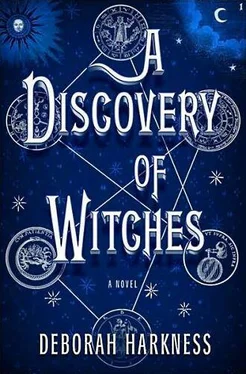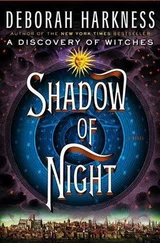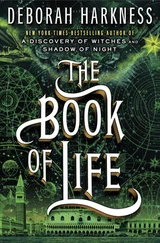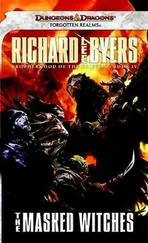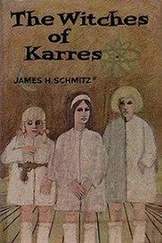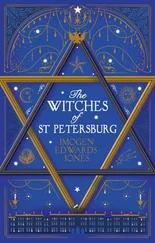My Latin was not as good as it should be, but I was sure the abbreviations stood for the Knights of Lazarus of Bethany—militie Lazari a Bethania —or for filia militie or filius militie, the daughters and sons of the knights. And if the order was still disbursing funds in the middle of the nineteenth century, the same was probably true today. Somewhere in the world, a piece of paper—a real-estate transaction, a legal agreement—bore an impression of the order’s great seal in thick, black wax.
And Matthew had applied it.
Hours later I was back in the medieval section of Matthew’s library and opened my last account book. This volume spanned the period from the late thirteenth century to the first half of the fourteenth century. The staggering sums were now expected, but around 1310 the number of entries increased dramatically. So, too, did the flow of money. A new annotation accompanied some of the names: a tiny red cross. In 1313, next to one of these marks, was a name I recognized: Jacques de Molay, the last grand master of the Knights Templar.
He’d been burned at the stake for heresy in 1314. A year before he was executed, he’d turned over everything he owned to the Knights of Lazarus.
There were hundreds of names marked with red crosses. Were they all Templars? If so, then the mystery of the Templars was solved. The knights and their money hadn’t disappeared. Both had simply been absorbed into the order of Lazarus.
It couldn’t be true. Such a thing would have taken too much planning and coordination. And no one could have kept such a grand scheme secret. The idea was as implausible as stories about—
Witches and vampires.
The Knights of Lazarus were no more or less believable than I was.
As for conspiracy theories, their chief weakness was that they were so complex. No lifetime was sufficient to gather the necessary information, build the links between all the required elements, and then set the plans in motion. Unless, of course, the conspirators were vampires. If you were a vampire—or, better yet, a family of vampires—then the passage of time would matter little. As I knew from Matthew’s scholarly career, vampires had all the time they needed.
The enormity of what it meant to love a vampire struck home as I slid the account book back onto the shelf. It was not just his age that posed the difficulties, or his dining habits, or the fact that he had killed humans and would do so again. It was the secrets.
Matthew had been accumulating secrets—large ones like the Knights of Lazarus and his son Lucas, small ones like his relationships with William Harvey and Charles Darwin—for well over a millennium. My life might be too brief to hear them all, never mind understand them.
But it was not only vampires who kept secrets. All creatures learned to do so out of fear of discovery and to preserve something—anything—just for ourselves within our clannish, almost tribal, world. Matthew was not simply a hunter, a killer, a scientist, or a vampire, but a web of secrets, just as I was. For us to be together, we needed to decide which secrets to share and then let the others go.
The computer chimed in the quiet room when my finger pressed the power button. Marthe’s sandwiches were dry and the tea was cold, but I nibbled so that she wouldn’t think her efforts had gone unappreciated.
Finished, I sat back and stared into the fire. The Knights of Lazarus roused me as a historian, and my witch’s instincts told me the brotherhood was important to understanding Matthew. But their existence was not his most important secret. Matthew was guarding himself—his innermost nature.
What a complicated, delicate business it was going to be to love him. We were the stuff of fairy tales—vampires, witches, knights in shining armor. But there was a troubling reality to face. I had been threatened, and creatures watched me in the Bodleian in hopes I’d recall a book that everyone wanted but no one understood. Matthew’s laboratory had been targeted. And our relationship was destabilizing the fragile détente that had long existed among daemons, humans, vampires, and witches. This was a new world, in which creatures were pitted against creatures and a silent, secret army could be called into action by a stamp in a pool of black wax. It was no wonder that Matthew might prefer to put me aside.
I snuffed the candles and climbed the stairs to bed. Exhausted, I quickly drifted off, my dreams filled with knights, bronze seals, and endless books of accounts.
A cold, slender hand touched my shoulder, waking me instantly.
“Matthew?” I sat bolt upright.
Ysabeau’s white face glimmered in the darkness. “It’s for you.” She handed me her red mobile and left the room.
“Sarah?” I was terrified that something had happened to my aunts.
“It’s all right, Diana.”
Matthew.
“What’s happened?” My voice shook. “Did you make a deal with Knox?”
“No. I can’t make any progress there. There’s nothing left for me in Oxford. I want to be home, with you. I should be there in a few hours.” He sounded strange, his voice thick.
“Am I dreaming?”
“You’re not dreaming,” Matthew said. “And, Diana?” He hesitated. “I love you.”
It was what I most wanted to hear. The forgotten chain inside me started to sing, quietly, in the dark.
“Come here and tell me that,” I said softly, my eyes filling with tears of relief.
“You haven’t changed your mind?”
“Never,” I said fiercely.
“You’ll be in danger, and your family, too. Are you willing to risk that, for my sake?”
“I made my choice.”
We said good-bye and hung up reluctantly, afraid of the silence that would follow after so much had been said.
While he was gone, I had stood at a crossroads, unable to see a way forward.
My mother had been known for her uncanny visionary abilities. Would she have been powerful enough to see what awaited us as we took our first steps, together?
I’d been waiting for the crunch of tires on gravel since pushing the disconnect button on Ysabeau’s tiny mobile phone—and since then it hadn’t been out of my sight.
A fresh pot of tea and breakfast rolls were waiting for me when I emerged from the bathroom, phone in hand. I bolted the food, flung on the first clothes that my fingers touched, and flew down the stairs with wet hair. Matthew wouldn’t reach Sept-Tours for hours, but I was determined to be waiting when he pulled up.
First I waited in the salon on a sofa by the fire, wondering what had happened in Oxford to make Matthew change his mind. Marthe brought me a towel and roughly dried my hair with it when I showed no inclination to use it myself.
As the time of his arrival grew nearer, pacing in the hall was preferable to sitting in the salon. Ysabeau appeared and stood with her hands on her hips. I continued, despite her forbidding presence, until Marthe brought a wooden chair to the front door. She convinced me to sit, though the chair’s carving had clearly been designed to acquaint its occupants with the discomforts of hell, and Matthew’s mother retreated to the library.
When the Range Rover entered the courtyard, I flew outside. For the first time in our relationship, Matthew didn’t beat me to the door. He was still straightening his long legs when my arms locked around his neck, my toes barely touching the ground.
“Don’t do that again,” I whispered, my eyes shut against sudden tears. “Don’t ever do that again.”
Matthew’s arms went around me, and he buried his face in my neck. We held each other without speaking. Matthew reached up and loosened my grip, gently setting me back on my feet. He cupped my face, and familiar touches of snow and frost melted on my skin. I committed new details of his features to memory, such as the tiny creases at the corners of his eyes and the precise curve of the hollow under his full lower lip.
Читать дальше
